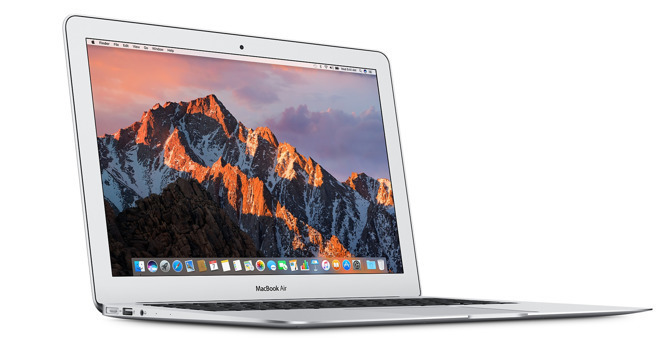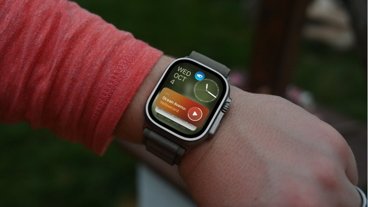In an effort to drive down overall production costs of its next-generation MacBooks, Apple has reportedly seized control over the procurement of many of the notebook's non-key parts — such as screws, metallic parts and plastics pieces — typically sourced by suppliers for the production of more major components.
Suppliers previously had free reign to acquire the parts needed to producing components, such as screws and other minor items, destined for use in Apple products, according to sources of DigiTimes. Apple reportedly had not interfered with the procurements process of its suppliers in the past, but the sources claim key component suppliers are now being restricted by a new Apple policy.
It is claimed some Taiwan-based supply chain partners working on MacBook components were summoned to Apple's headquarters for a meeting in late May, with the new procurement policy advised at that time.
Sourcing non-critical components under old policies effectively allowed the component producer to choose their own supplier, with Apple's influence consisting of screening the name of the third-party supplier and inspecting their supply quality and shipment schedules.
Under the new policy, Apple will allegedly negotiate with third-party suppliers directly, dictating the price and order volumes that will be provided to the supply chain partner. The reported change in policy is likely to give production partners some financial discomfort, as it would effectively eliminate any markup applied to the purchased materials, thought to be between 10 percent and 15 percent of the purchase price.
Industry observers suggested the supply chain partners would earn only the contract production fees once the new policy is implemented. The reduced revenue could prompt changes in the manufacturing process to cut costs, or for the firms to expand their client base to include customers from other business sectors.
The new policy does have the potential to reduce the overall cost of manufacture for Apple, but it could also lead to an increase in quality. By directly negotiating further up the supply chain, Apple can also make sure the smaller parts used in component construction are as high quality as possible, and eliminate the use of bogus parts in its products.
While the report talks about the MacBook supply chain, such a procurement policy change would also be beneficial to Apple for its other products, including its main iPhone lines. Reducing the cost of components used in iPhone production will lower the cost of each iPhone produced, which can increase revenues even further.
Apple is rumored to be preparing updates to its MacBook and MacBook Pro lines in the near future, possibly announced as part of today's WWDC keynote, after it was found some models were unavailable for purchase and delivery until after the event.
There has been a suggestion new MacBook Pro models would use Intel's Coffee Lake processor. Intel is also producing the Cannon Lake processor that would allow the MacBook Pro to have 32GB of LPDDR4 RAM instead of the current maximum of 16GB, but it is unlikely sufficient quantities of the processor will be available until late 2018 or early 2019.
Those looking for a MacBook update may be disappointed, as one report on May 31 claimed it would not make an appearance during the WWDC keynote.
AppleInsider is in San Jose all week with the latest news from WWDC 2018. Stay abreast of Apple's announcements by downloading the AppleInsider app for iOS, and follow us on Twitter @appleinsider and Facebook for live, late-breaking coverage. You can also check out our official Instagram account for exclusive photos from the event.
 Malcolm Owen
Malcolm Owen

-m.jpg)






 Andrew O'Hara
Andrew O'Hara
 Wesley Hilliard
Wesley Hilliard


 Marko Zivkovic
Marko Zivkovic

 Chip Loder
Chip Loder
 Christine McKee
Christine McKee




-m.jpg)




12 Comments
Are the screws made of zinc? I gotta know!
If true, this policy change won’t go into effect this calendar year. It’s way to late to impact the current production cycle.
Better manufacturing processes lead to higher quality and lower cost. With that, I hope Apple pass that savings to users and offer MACs at lower affordable attractive price so more people can buy expanding MAC echo system. For example, base 13" MBP with 8GB RAM and 256GB SSD can be offered below $1200 which is still more than twice comparing similar Windows laptop. One day when Apple will control design/produce CPU/GPU/memory for MACs than yearly updates and prices of MACs will be better
The Mac is dead for most normal folks.iPad is way better .
Unless Apple proves me wrong today. Let’s see.
I think this is much much more about supplier quality, responsible sourcing, and traceability than cost reduction stated in the headline. The potential cost reduction is peanuts compared to the potential losses and reputation hits that can be caused by a 50 cent part that takes down a $2500 computer, the revelation that a part is sourced through a child labor camp, or a failed part that requires recall not being traceable to a manufacturing batch.